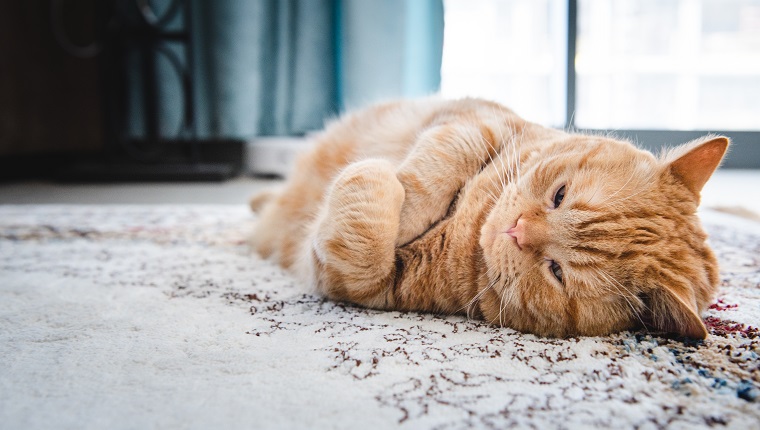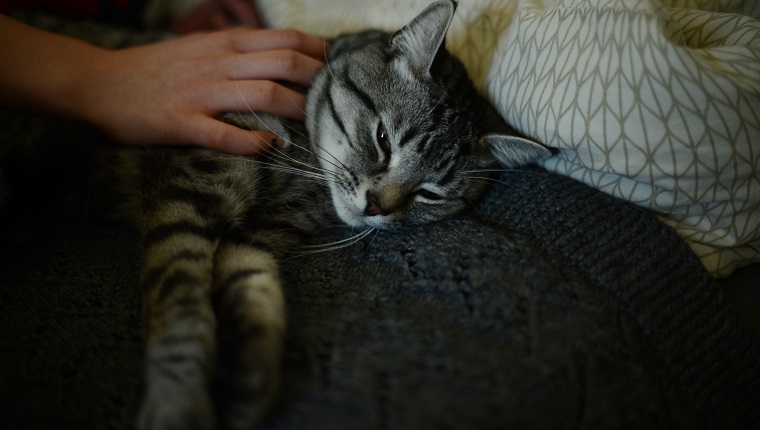Seizures in cats happen when abnormal instances of electrical activity take place in the brain. This can cause shaking, convulsions and drooling.
They’re normally categorized as either intracranial or extracranial seizures, depending on whether the cause comes from inside or outside the skull respectively.
If you see the signs of a seizure in your cat, then you must get to a veterinarian for a proper diagnosis and treatment. Here’s what you should know about the symptoms, causes, and treatments for seizures in cats.
Symptoms Of Seizures In Cats
Symptoms of seizures in cats most usually take the form of the cat shaking. This is sometimes accompanied by drooling.
Other common symptoms include:
- Losing consciousness
- Convulsions
- Tremors
- Losing control of the bladder and bowels
- Meowing and crying extra loudly
- Aggression
Causes Of Seizures In Cats

The cause of a seizure determines whether the cat is experiencing an intracranial seizure or an extracranial seizure.
In the case of intracranial seizures, the causes may include tumors on the brain, trauma, parasites, and infections.
When it comes to extracranial seizures, the causes may include disease of the liver and kidney, high blood pressure, and consuming medicine intended for humans.
Epilepsy may also cause seizures in cats.
Treatments For Seizures In Cats
If you see your cat having a seizure, resist the urge to touch or move them until it is over, then call your veterinarian to make an immediate appointment. Also, try to make a note of how long the seizure lasts for, and if the seizure does not stop after five minutes, make plans to go to an emergency veterinarian.
Once your vet confirms that your cat has experienced a seizure, they will recommend a course of treatment based on the root cause. This may involve specific medication to overcome an infection or toxin. In some cases, vets might recommend drugs known as anticonvulsant medicine to prevent seizures.
If your veterinarian prescribes your cat a course of medicine to help your cat recover, it is vital that you administer the full course of medicine even if your cat seems to have recovered early.
In cases where a cat experiences numerous seizures, your veterinarian might suggest carrying out further tests.
Has your cat ever had a seizure? How did your vet help your cat recover? Let us know in the comments section below.









